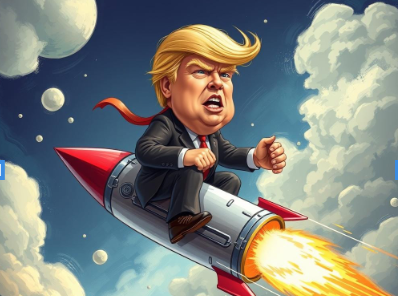$RTSI $USDRUB $BTC
#Russia #Ukraine #Ceasefire #Trump #Putin #Geopolitics #StockMarket #OilPrices #Investing #Crypto #USD #EconomicImpact
U.S. President Donald Trump and Russian President Vladimir Putin are scheduled to hold a critical discussion regarding a proposed 30-day ceasefire in Ukraine. The call is expected to have significant geopolitical and economic ramifications as investors weigh the potential for de-escalation in the region. Markets have been highly sensitive to developments in the ongoing conflict, with oil prices, defense stocks, and global indices reacting to each shift in sentiment. A potential ceasefire could ease investor concerns about extended military spending, supply chain disruptions, and the impact on global commodity markets, particularly oil and natural gas prices. The Russian ruble and stock markets, which have faced volatility due to sanctions and geopolitical uncertainty, could also see movements in response to any progress in diplomatic negotiations.
The war in Ukraine has already had widespread effects on global financial markets, with investors closely monitoring energy price fluctuations and military expenditures. European markets, in particular, have borne the brunt of the economic fallout, as disruptions to energy supply chains have driven up costs for businesses and consumers. Additionally, U.S. defense contractors have seen their stocks perform well due to increased military aid to Ukraine. If a ceasefire agreement is reached, traders and analysts expect lower volatility in energy markets, particularly for crude oil and natural gas. The ruble, which has weakened at times due to heavy sanctions, may stabilize if peace talks signal a reduction of geopolitical risks. Similarly, Russian equities, particularly in the energy and banking sectors, could see upside movements if investors regain confidence in the country’s economic stability.
Cryptocurrency markets, which have often reacted to geopolitical instability, could also see notable movements. Bitcoin ($BTC) has increasingly been viewed as a hedge against geopolitical turmoil, with some investors seeking it as a store of value amid traditional market uncertainty. A ceasefire deal could lead to decreased capital flows into crypto as investor anxiety subsides, potentially leading to a temporary cooling in Bitcoin and other digital assets. On the other hand, a more sustained peace process could foster an improved sentiment for global risk assets, leading to broader market rallies and increased appetite for speculative investments, including cryptocurrencies. If financial sanctions against Russia are eased in the wake of successful negotiations, traditional banking systems may also stabilize, reducing the perceived necessity for decentralized alternatives like Bitcoin.
Market participants will be closely watching for any statements from the White House and the Kremlin following the talks. Any progress toward a ceasefire could lead to a relief rally, with reduced volatility in commodities and equity markets. However, if discussions falter or fail to yield concrete steps toward de-escalation, market instability could persist, particularly affecting sectors exposed to geopolitical risk, including energy, defense, and currency markets. Traders and analysts will also be dissecting any forthcoming policy shifts, including potential changes to U.S. sanctions or Russian government responses, which could shape investment strategies in the coming weeks.











Comments are closed.